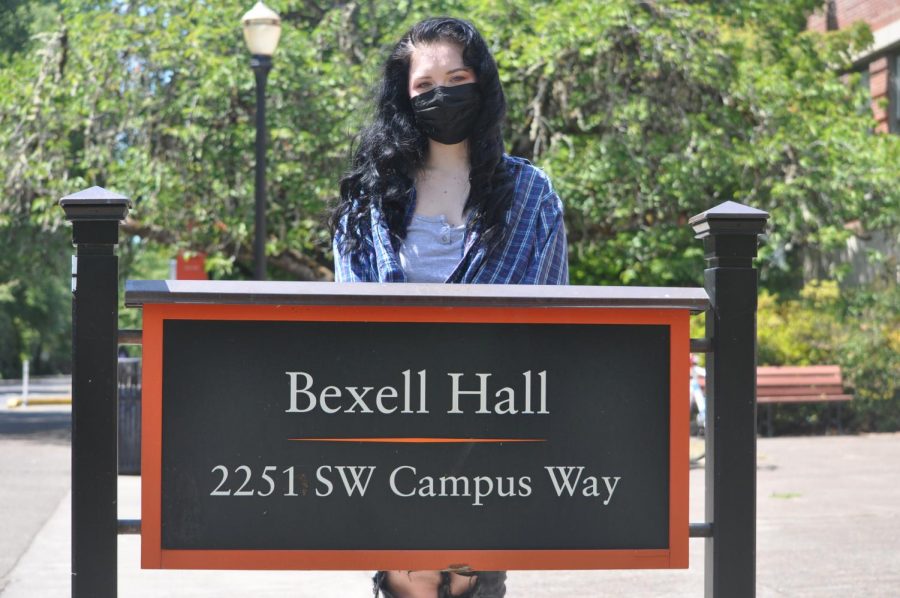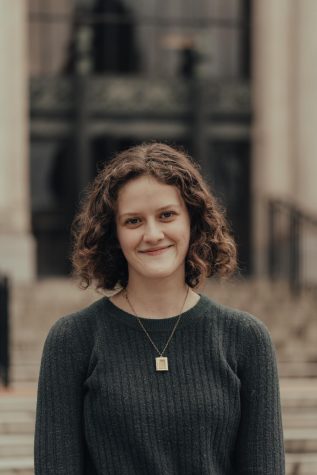Navigating post-pandemic world may be ‘especially difficult’ for people with anxiety
August 18, 2021
Stress and anxiety due to the pandemic, which have been prevalent over the past 17 months, are likely to still be difficult as the public navigates post-pandemic life.
In the 2020 report of the American Psychological Association’s annual Stress in America survey, almost 78% of adults said the COVID-19 pandemic was a “significant source of stress” in their life. Generation Z adults (ages 18-23) reported the highest levels of stress in comparison to other generations at 6.1 out of 10 on average.
According to Regan Gurung, Oregon State University associate vice provost for the Center of Teaching and Learning, professor of psychology and director of the General Psychology Program, the mental health of college students was always not great, even prior to the pandemic. Then, 33% of college students were reporting mental health issues—that number has now jumped up to 45%-50%.
Gurung explained there are multiple reasons for these increases, which are also mirrored in the general public. Increased uncertainty due to the pandemic in terms of job and housing insecurity, financial stress and public health concerns has been a contributor.
Additionally, Gurung pointed out that the pandemic changed the situations people were in, leaving people to stay home most of the time and change their normal routines, which can be unsettling.
“Those are big factors of the pandemic: unpredictableness, this lack of control [and] uncertainty—these are all the classic things that make one more stressed, make one more anxious,” Gurung said.
Ian Kellems, the director of OSU’s Counseling and Psychological Services, agreed that the pandemic has been particularly difficult for young adults.
“This is a time when you’re supposed to be connecting with other people, figuring out what you want to do with your lives and doing all the amazing things that come with being young,” Kellems said in an email. “But you haven’t been able to do those things — so that’s hard. We know from national surveys that young people are really struggling—experiencing more suicidal thoughts, using substances more, feeling more anxious.”
Kellems said COVID-19 has essentially “turned the volume up” on the struggles experienced by the public, including anxiety. Not being able to connect with others has also been a difficult aspect of the pandemic and social isolation that has contributed to people’s anxiety, according to Kellems.
Kate Rockey is a fifth-year psychology student and president of the club Psyched Out, a student-led organization which focuses on engagement within OSU’s psychology community. Rockey pointed out that the COVID-19 pandemic itself has not been the only thing contributing to people’s anxiety and stress levels.
“We had the lockdown, the murder of George Floyd and the police brutality and protests that followed, the wildfires in California and Oregon that made the sky red for days… and then the presidential election in November,” Rockey said in an email. “Our lives were turned upside down and inside out. Humans are such social beings, and being isolated from friends and family can have immediate and lasting impacts on anyone.”
Rockey identifies as neurodivergent and personally experiences anxiety, and she found it difficult to navigate the change in routine the pandemic caused.
Oregon reopened on June 30, meaning all COVID-19 restrictions were lifted, including the mask mandate and social distancing requirements. OSU, following the state’s direction, also lifted its face covering and physical distancing policies and is planning for in-person instruction this fall. Though this is generally cause for celebration, Kellems said this new change will likely be hard for people experiencing anxiety.
“It was hard to shift to social distancing, and it can also be hard to shift back to ‘normal’ social interactions,” Kellems said. “All these changes can feel especially difficult for someone who has anxiety.”
Rockey specifically referenced people with social anxiety having a hard time returning to “normal.” Personally, as an introvert, Rockey said she lost a lot of her social skills during the pandemic. Additionally, since she experiences sensory and social discomfort, the change will be challenging.
Though post-pandemic life will be difficult for some with anxiety, Gurung said it may be good for others, depending on the severity of their anxiety and personality traits.
Generally, Gurung said he thinks extroverts, people who are outgoing and thrive in social environments, will fare better in a post-pandemic world and that introverts, people who are shyer and thrive in solitary or small group environments, will have a more difficult time.
“Introvert or extrovert is neither good nor bad,” Gurung said. “But the reality is those underlying personality factors will greatly moderate your reaction to the lifting of [restrictions].”
Gurung said the most important thing to remember as people enter a post-pandemic world is that “one size doesn’t fit all.”
“Just because something works for you, it doesn’t mean it has to work for your friend,” Gurung said.
Gurung used the metaphor of a circuit breaker. He said it’s important to develop one’s own personal circuit breaker—when someone reaches a certain level of stress and it breaks their circuit, Gurung suggested taking that as a sign to step back and take time to rest before jumping back in.
“It’s okay to take your time and slowly ease back into things,” Gurung said.
Kellems said the first step in dealing with this kind of stress and anxiety is to acknowledge it and then to build a support system.
CAPS is also planning therapy groups for topics specific to the COVID-19 pandemic like managing stress and social anxiety and activities like speed dating to help students create new connections.
“This is an anxiety-provoking time for most of us, and even more so for people who struggle with anxiety,” Kellems said. “My hope is that we can navigate these changes with compassion for ourselves and for others.”











































































































